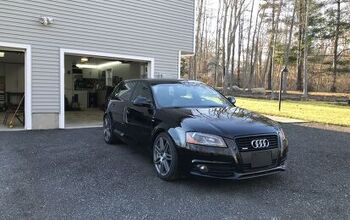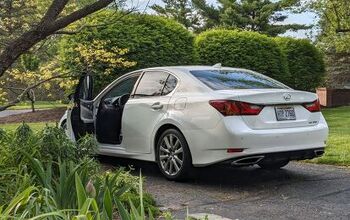Tesla Rolls Out a Pricing Plan for Its No-longer-free Supercharging Stations

After lulling everyone into a false sense of security, Tesla Motors recently announced that it will begin billing new customers for making use of its Supercharging stations. The promise of free charging was replaced with the promise that the company wouldn’t profit from the powering fee — instead, it would use the money to expand its growing network of stations.
While the pricing structure is about as rigid as boiled spaghetti, the EV manufacturer does appear to be respecting the nature of the new deal. Announced Thursday, all Tesla vehicles ordered after January 15th will receive around 1,000 miles worth of charging credits, updated annually, before becoming subject to the company’s new charging monetization.
Unfortunately, due to state regulations and regional demand for power, pricing will vary greatly depending on where you plug in.
Tesla’s official announcement states, “In North America, pricing is fixed within each state or province; overseas, pricing is fixed within each country.”
That means the majority of owners will be paying per kilowatt hour, which can vary rather dramatically. While some of the Southern states currently hover around 10 cents per kWh, prices in Northeast can be twice as high. However, due to local regulations, some states will be required to charge per minute of usage.
Tesla says that the Supercharging fee equates to a $15 for a road trip from San Francisco to Los Angeles or about $120 for a cross-country trip from Los Angeles to New York.
Supercharging stations are typically located at or near highways, intended to alleviate range anxiety and make longer-range EV trips possible. With around 800 locations worldwide, Tesla can’t be faulted too harshly if a penny or two goes into expanding that charging network, especially as the Model 3 approaches and plug-in spaces begin to dwindle.
[Image: Tesla]

A staunch consumer advocate tracking industry trends and regulation. Before joining TTAC, Matt spent a decade working for marketing and research firms based in NYC. Clients included several of the world’s largest automakers, global tire brands, and aftermarket part suppliers. Dissatisfied with the corporate world and resentful of having to wear suits everyday, he pivoted to writing about cars. Since then, that man has become an ardent supporter of the right-to-repair movement, been interviewed on the auto industry by national radio broadcasts, driven more rental cars than anyone ever should, participated in amateur rallying events, and received the requisite minimum training as sanctioned by the SCCA. Handy with a wrench, Matt grew up surrounded by Detroit auto workers and managed to get a pizza delivery job before he was legally eligible. He later found himself driving box trucks through Manhattan, guaranteeing future sympathy for actual truckers. He continues to conduct research pertaining to the automotive sector as an independent contractor and has since moved back to his native Michigan, closer to where the cars are born. A contrarian, Matt claims to prefer understeer — stating that front and all-wheel drive vehicles cater best to his driving style.
More by Matt Posky
Latest Car Reviews
Read moreLatest Product Reviews
Read moreRecent Comments
- Sayahh I do not know how my car will respond to the trolley problem, but I will be held liable whatever it chooses to do or not do. When technology has reached Star Trek's Data's level of intelligence, I will trust it, so long as it has a moral/ethic/empathy chip/subroutine; I would not trust his brother Lore driving/controlling my car. Until then, I will drive it myself until I no longer can, at which time I will call a friend, a cab or a ride-share service.
- Daniel J Cx-5 lol. It's why we have one. I love hybrids but the engine in the RAV4 is just loud and obnoxious when it fires up.
- Oberkanone CX-5 diesel.
- Oberkanone Autonomous cars are afraid of us.
- Theflyersfan I always thought this gen XC90 could be compared to Mercedes' first-gen M-class. Everyone in every suburban family in every moderate-upper-class neighborhood got one and they were both a dumpster fire of quality. It's looking like Volvo finally worked out the quality issues, but that was a bad launch. And now I shall sound like every car site commenter over the last 25 years and say that Volvo all but killed their excellent line of wagons and replaced them with unreliable, overweight wagons on stilts just so some "I'll be famous on TikTok someday" mom won't be seen in a wagon or minivan dropping the rug rats off at school.


































Comments
Join the conversation
The Chevy Bolt cost $37,495. The possibility that part of that cost will be subsidized by one's fellow citizens should not allow one to say the Bolt cost $30,000 when comparing the societal economic value of electric vs ICE.
Can you say "bait and switch?" . .